Before the downward spiral of Huawei‘s smartphone business, the tech giant had consistently partnered with Porsche Design to release customized luxury variants of its already premium flagship smartphones. Last year’s Mate 40 series also got an RS Porsche Design Edition but this model has been in short supply since its debut. Intending buyers usually have to make a reservation to buy it. In order to make it available to buyers, Huawei has launched a new variant of the Mate 40 RS Porsche Design.
The new variant comes in 8GB RAM + 256GB
storage combo and is already on sale on Huawei Mall for 10,000 yuan (US$ 1,544).
For reference, the top model comes with 12GB RAM and 512GB storage. This top
variant is still available but via reservations while the new 8GB RAM version
is on open sale, of course, while stock lasts. It is available in two color
options – ceramic black and ceramic white.
The Porsche Design Huawei Mate 40 RS
features a high-strength nano-tech ceramic back that is described by Huawei as
having a “diamond-like shine and a sapphire-like toughness”. The design also sees the premium model
packing an octagonal camera housing.
The Mate 40 RS shares specs with the Mate
40 Pro and this includes a 6.76-inch OLED display with a 90Hz refresh rate. The
phone adopts a pill-shaped punch hole located at the top left corner of the
display. The front camera setup consists of a 13MP sensor and a 3D
depth-sensing camera.
The flagship phone is powered by the Kirin
9000 chipset. For photography, there is a 50MP Ultravision main camera teaming
up with a 20MP ultrawide Cine Camera, as well as a 12MP telephoto camera with
3x optical zoom and OIS, and an 8MP SuperZoom Camera capable of 10x optical
zoom and having OIS. The fifth sensor is a 3D depth-sensing camera with support
for autofocus.
Keeping the lights on is a 4400mAh battery
with 66W Wired Huawei SuperCharge and 50W Wireless Huawei SuperCharge support.
The phone also comes with stereo speakers, NFC, Bluetooth 5.2, Wi-Fi 6, and a
USB 3.1 Type-C port. It runs on Android 10-based EMUI 11 from the go.





